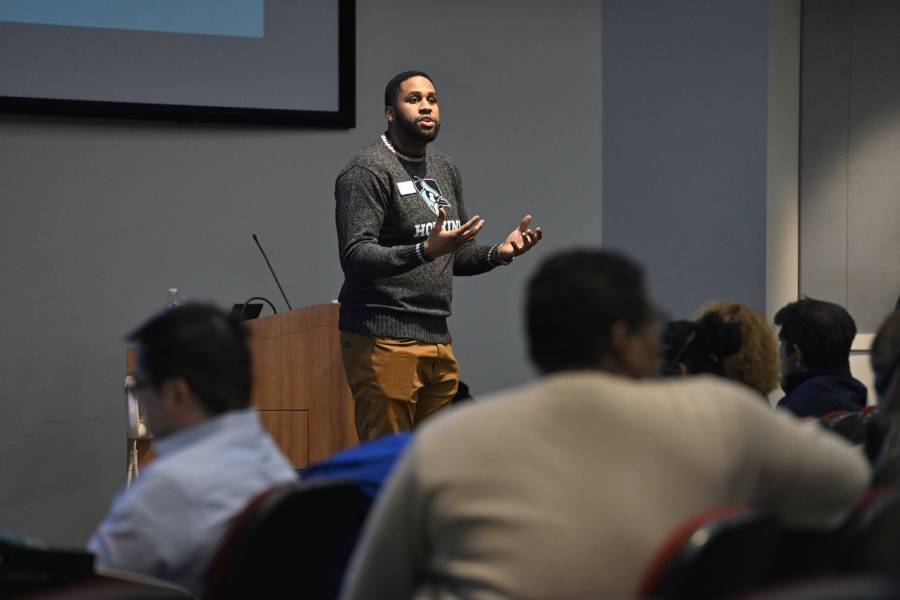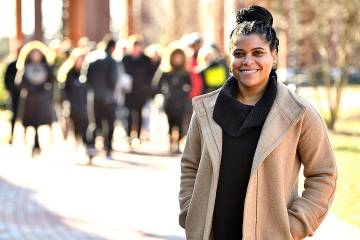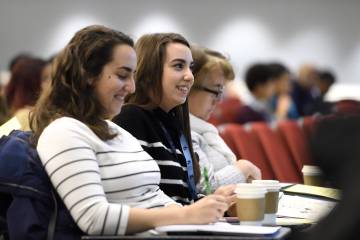Nearly 300 students and their families from 45 local high schools joined Johns Hopkins on Saturday for the annual Excel Youth Conference, an event focused on empowering and informing Baltimore-area students as they navigate the college search and application process.
This year, the Johns Hopkins Office of Admissions and Office of Financial Aid partnered with Equal Access Language Services to provide interpretation for more than 40 attendees with limited English proficiency. All materials, including the schedule, workshop handouts, and financial aid information were also made available in Spanish. The service enabled native Spanish speakers to more openly engage and ask questions throughout the event, and the admissions office plans to offer more programming for multilingual students and families at upcoming events, including the Spring Open House Overnight Program and virtual information sessions.
The program featured workshops and talks specially designed for student audiences as well as programs for parents and families.
"When we started this event, we wanted to create a forum to engage parents and caregivers along with students in their educational journey," said Calvin Wise, JHU director of recruitment for undergraduate admissions. "Parents and caregivers play such a vital role in college selection. But for students who are the first in their families to go to college, or who come from families with limited financial resources, families may not know how they can support their students throughout the process."
During the morning session, parents attended a panel with local college counselors that broke down vital information a family needs to know when thinking through their student's college options—topics such as scholarship resources, extracurricular activities, academic selection, and the college search timeline.
Meanwhile, students attended mock classes led by JHU faculty members, including:
- Rigoberto Hernandez, a professor in the Department of Chemistry, who taught a lesson on the chemistry of hard cooking an egg
- Eileen Haase, a professor in the Department of Biomedical Engineering, who led a class on heart rate changes while riding a roller coaster
- François Furstenberg, a professor in the Department of History, who discussed the hidden French history of the American West
The students then broke into small groups to learn about applying to colleges and what admissions officers at Johns Hopkins look for in application materials, including personal essays. The afternoon was filled with information sessions on athletics, civic engagement, performing and visual arts, study abroad, and life design—a new approach to how Johns Hopkins prepares students for careers.
The day ended with a family session on financial aid, covering the differences between sticker price and what students can actually expect to pay and breaking down the nuances of estimated family contributions.
"Sticker shock is one of the biggest barriers for first-generation students and students coming from families with limited financial resources," Wise said. "They see our total cost of attendance and rule us out as an option. But in reality, these students benefit the most from our generous financial aid packages."
In 2018, Johns Hopkins officially became need-blind for domestic students, as well as those with DACA or undocumented status. This means the university can now cover 100% of a family's demonstrated financial need through a combination of grants and work-study, not loans.
"Part of the goal of Excel Youth Conference is to let talented students know that institutions like ours are within reach, regardless of their family background," Wise continued. "This is especially true for the students in our own backyard."
Posted in University News, Community










